For a man who's won two consecutive Oscars and could well make history with a third in as many years, Emmanuel Lubezki is a surprisingly humble fellow. The Mexican cinematographer, better known these days as "Chivo" since everyone is familiar with extraordinary gift and using his nickname now, shakes off my initial gushing as we meet. He is quick to cite assistants and crew members and focus pullers for the magic. But I press on. I really want to know hear how it feels for him to be a legend in his field, a two time Oscar winner and someone who's name is spoken with a certain reverence. He shakes this off, too, adamantly but graciously "I don't know what you're talking about! I don't feel that at all. But thank you!"
Some of his innocence about the kind of reviews he regularly receives could be chalked up to how completely immersed he gets in each picture. His work isn't over when a film wraps since post production can also be lengthy with different prints for IMAX and such. He's been inside The Revenant for a year.
I'm just coming out of the cave where I've been, I'm just starting to come back to life.
Our interview is after the jump...
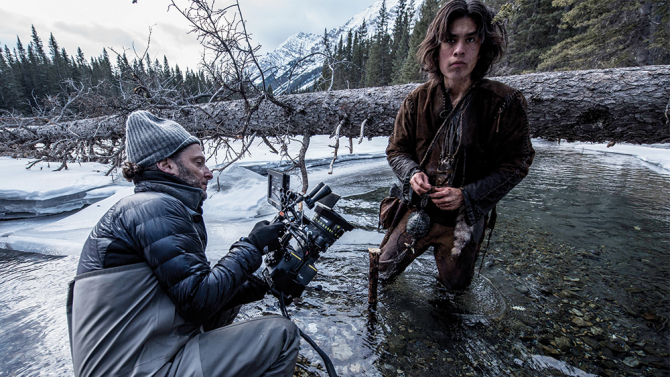 Emmanuel "Chivo" Lubezki shot by Kimberley French
Emmanuel "Chivo" Lubezki shot by Kimberley French
NATHANIEL R: This is your second picture with Alejandro G Iñárritu. But before him you've had long working relationships with Alfonso Cuarón and Terrence Malick. Do ongoing relationships help with creativity?
EMMANUEL LUBEZKI: Yes. Absolutely. Those directors have been very important for me. I admire them immensely. What they have in common is they are true artists. They are constantly experimenting. Working with them is a little bit like walking a tightrope. They are trying to use the language in a different way and to be very specific about each project. Their love for film and art and life is intoxicating. I've been very lucky. I hope that I get to work with them again.
NATHANIEL: Well Cuarón and Malick always hire you so you're safe.
LUBEZKI: But at the same time I like to work with other directors. To me the most important thing is for the director to have an appetite and to want to experiment. There are so many wonderful directors.
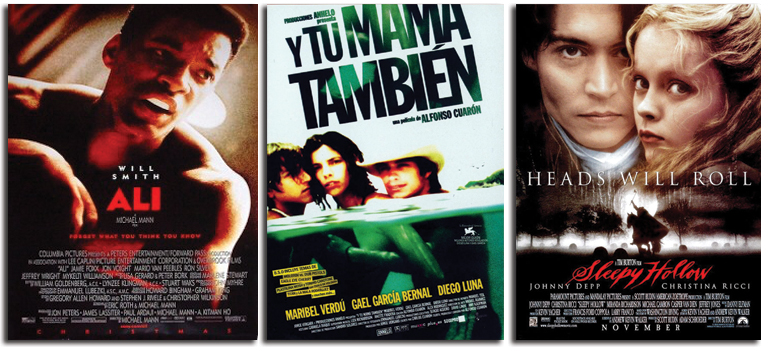
I loved the work you did with Michael Mann on Ali.
He's an incredible director. I also enjoyed working with Tim Burton. It was absolutely exquisite. The movie we did together [Sleepy Hollow] was very special.
You've worked with only natural light on a few different projects now.
That's just a coincidence! If you think about it, I didn't do that in Birdman or Gravity at all -- there was no natural light. Whatever is specific to the project should be applied to the project. You try not to fall in formula and repeat.
Some amazing craftsmen in Japan, you know, they try to do the same thing over and over until they've mastered it. I'm not saying it's bad but it's not what interests me. But if a director wants a movie that looks exactly like some other one, I might take that as a challenge as well.
The reason I ask about the natural light is that usually when we picture cinematographers we think of a ton of camera equipment, people setting up all the lights for hours and so on. When you don't have a lot of that, like on The Revenant, is it just about waiting for the right light? What is the challenge exactly?
It was incredibly challenging. The days were short and the nature of the locations was hard. Using natural light doesn't mean I'm doing nothing. It doesn't mean I just arrive and start shooting. Each location had a very specific window of time where the combination of light and topography were charged with the mood and spirit we wanted to express.
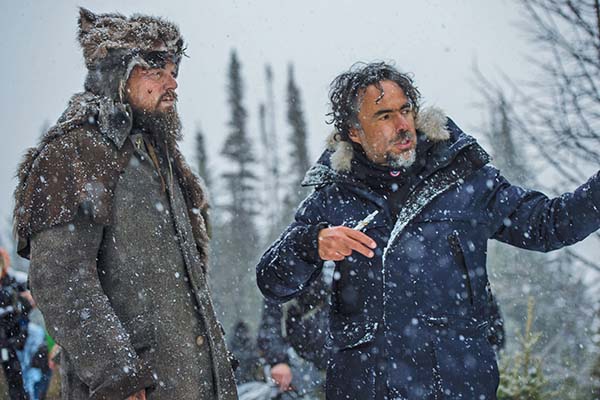
It was very difficult to have continuity because the light is constantly changing. If you're trying to use light that is expressive you have to work very hard in natural light. It entails months of preparation. But you gain a lot: if you don't have lighting instruments littering the set, you're able to move around faster and you're able to capture grand vistas and big expanses of the environment that you otherwise wouldn't be able to because you'd have electricians and cables and lamps.
The movie is quite visceral at times. I'm thinking in particular of the scenes on horseback or that opening battle where they're running to the boat. Are you and your team jumping on horses and in the water yourself?
[Laughter] All sorts of crazy things! The hardest thing was to cross the river with a handheld camera, trying to follow the actors and not fall and destroy the shot. Even though the river doesn't look very powerful, it was!
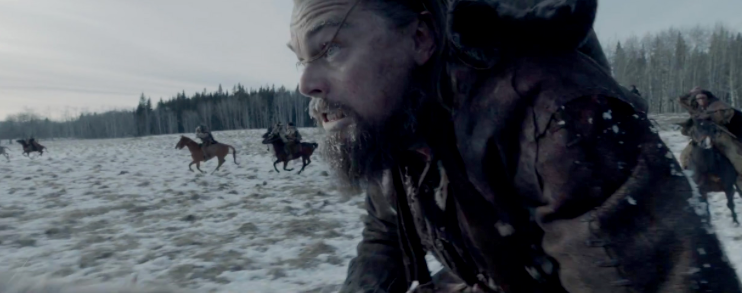
You probably felt like one of the actors.
Yes, yes. And also riding near the horses is very hard. We have these wide lenses. The wider the lens, if you're trying to capture a closeup, the closer you have to be. Many times I'm just inches away from the actor. It makes it very hard for the crew, especially for the focus puller that has to keep everything sharp. The camera is on flux going a certain direction, the actors are moving with no marks. This guy has to almost predict where they're going -- it's amazing this guy John Connor is like a bat!
Your last few pictures have been such huge technical challenges. We're always reading about new camera lenses and systems...
I have to confess: I'm not a geek. I don't do the movies because of the technology at all. I think without my assistant I would not even know how to turn on the camera.
[Laughter]
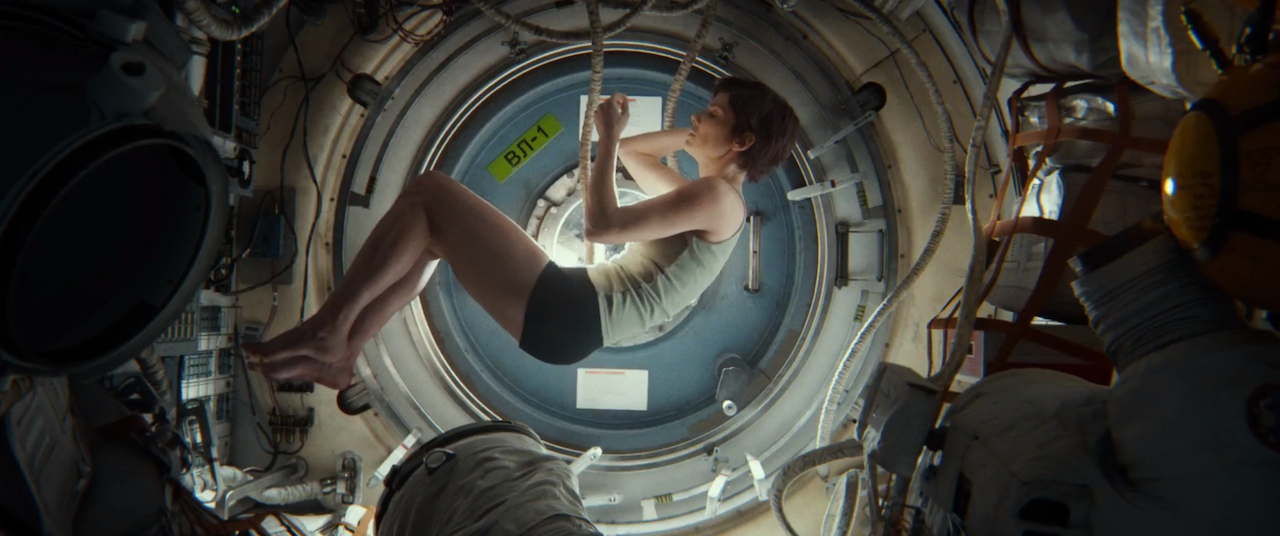 Lubezki won his first of two consecutive Oscars for Gravity (2013)
Lubezki won his first of two consecutive Oscars for Gravity (2013)
EMMANUEL LUBEZKI: I'm lucky that I've worked with directors who are authors, artists, very great craftsmen and they know the tools of filmmaking. They want to use all their knowledge to push the medium and find the right language for each film we do. In that sense I've been lucky that we have these new technologies beause we were able to implement them to tell the stories the way we thought was best; sometimes it took new cameras. But it's not something that happens the other way where there's a new camera so I bring it to the set because it's new. I don't do that at all.
NATHANIEL R: So after all these epics, would you love to do something beautiful and small again like a Y Tu Mama Tambien?
Before The Revenant I did a movie called Last Days in the Desert with Rodrigo Garcia and it's very simple. We wanted the movie to be minimalistic and very humble in a way. We did it with a very small crew and natural light in the desert of California.
Before you leave I have to ask about your popular Instagram account. Do you use that to replenish your creative juices between projects?
What happened was I have younger daughters and they got an Instagram account and I saw them taking hundreds of photos with their phones. I wanted to know what that was about. I asked them to open me an account. I have to be honest, it was a way of spying on them!
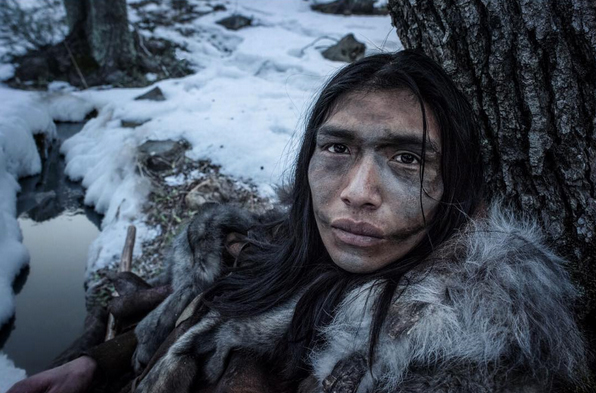
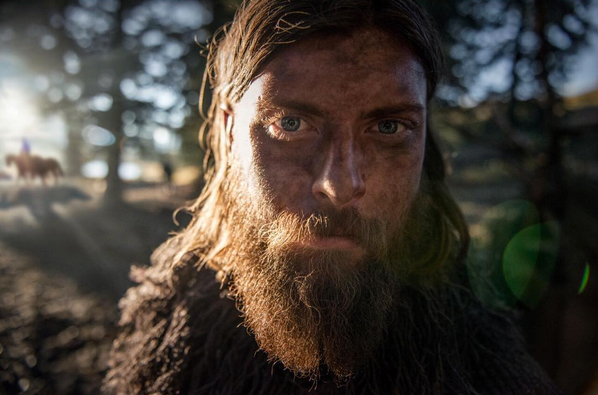 In the series "Faces of R" Chivo took portraits of actors on the set of The Revenant
In the series "Faces of R" Chivo took portraits of actors on the set of The Revenant
You know, very soon I realized how amazing it was to have this ability to watch the work of all these professional and nonprofessional photographers from all around the world. You could have a glimpse of life from Yemen to Iran, to the mountains of Mexico, to South America, and on islands. There was an account that I loved from Siberia! All of this stuff was very exciting and I thought I should post a photo once a week. I wanted to be a still photographer and I hadn't done it in a long time. It will help me -- How do you say when you're rusted and need to start moving?
Like a tune up.
Yeah, a tune up. My little gallery and I don't have to deal with anybody. And little by little I started following other cinematographers. One day Phedon Papamichael was interviewed by the New York Times and he said that he was following me and put the address in and [Makes wooshing noise] So many followers! I was keen on answering people and having conversationsbut it became impossible to answer any more. But it's still wonderful for me to tune up.

More Cinematography | More on The Revenant | Previous Interviews | Oscar Visual Charts